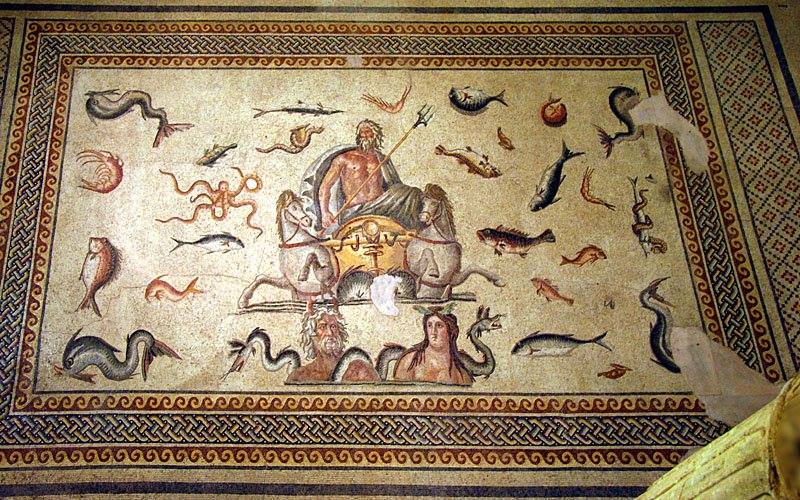The Sibyl, with frenzied mouth uttering things not to be laughed at, unadorned and unperfumed, yet reaches to a thousand years with her voice by aid of the god.'[2]
Cybele - from the Wikipedia entry:
The gigantic remains of such a figure at Mount Sipylus, though lacking inscriptions and much eroded, are consistent with later representations of a seated Cybele, with a supporting or attendant lion beneath each arm. At Pessinos in Phrygia, the mother goddess - identified by the Greeks as Cybele - took the form of an unshaped stone of black meteoric iron,[9] and may have been associated with or identical to Agdistis, Pessinos' mountain deity.[10]
No contemporary text or myth survives to attest the original character and nature of Cybele's Phrygian cult but the ubiquity of her Phrygian name, Matar ("Mother"), image and iconography in funerary contexts suggests her as mediator between the "boundaries of the known and unknown".[11] Her associations with hawks, lions, and the very stone of the wild, mountainous Anatolian landscape, suggest her as mother of the land and its wild, untrammeled nature, with power to dominate, moderate or soften its latent ferocity, and control its potential threats to a settled, civilised life; thus, her enrollment as a protective goddess of the state by Anatolian elites, possibly concurrent with some form of ruler-cult.[12] At the same time, her power "transcended any purely political usage and spoke directly to the goddess' followers from all walks of life".[13] Over time, her Phrygian cults and iconography were transformed, and ultimately subsumed, by the influences and interpretations of her foreign devotees, at first Greek and later, Roman.More links:
Mt. Ida
The mountain is the scene of several mythic events in the works of Homer. At its summit, the Olympian gods gathered to watch the progress of the epic fight. But the mountain was the sacred place of the Goddess, and Hera's powers were so magnified on Mount Ida, that she was able to distract Zeus with her seductions, just long enough to permit Poseidon to intercede on behalf of the Argives to drive Hektor and the Trojans back from the ships.
Sibylline Books
Erythraean Sibyl
Sibyl
Pessinus
Attis
 |
| Sibyl Siena Duomo |


No comments:
Post a Comment